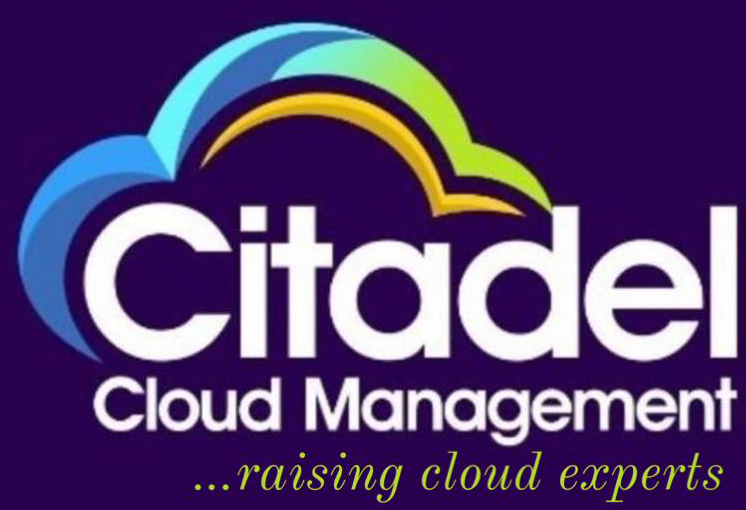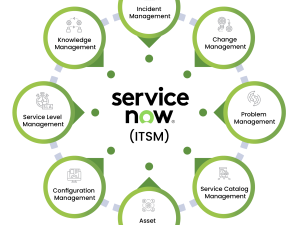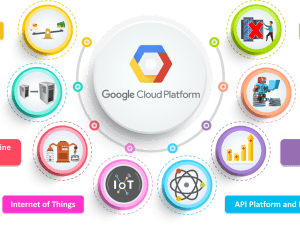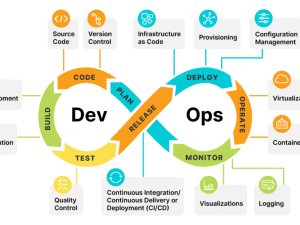Oracle Cloud
- Description
- Curriculum
- Reviews
This course offers a deep dive into Oracle Cloud Infrastructure (OCI), one of the leading cloud platforms for enterprises. Designed for IT professionals, cloud engineers, and anyone looking to develop expertise in cloud technologies, this course covers the essential components and services within OCI. You will learn how to leverage OCI to deploy, manage, and scale cloud-based applications while optimizing cost, security, and performance.
Throughout the course, you’ll gain hands-on experience with key Oracle Cloud services such as compute, networking, storage, and databases. You will also explore OCI’s identity and security management features, cloud-native applications, and automation tools to streamline infrastructure management. By the end of this course, you’ll be equipped to manage Oracle Cloud resources effectively, ensuring your organization’s cloud infrastructure is secure, scalable, and efficient.
Key Takeaways:
- Understand the fundamentals of Oracle Cloud Infrastructure (OCI)
- Learn to provision and manage OCI compute, storage, and networking services
- Gain hands-on experience with Oracle Cloud databases, including Oracle Autonomous Database
- Learn to use Identity and Access Management (IAM) for secure cloud operations
- Explore OCI monitoring and security tools to enhance performance and reliability
- Develop skills for automating cloud infrastructure using Oracle Cloud services
- Understand best practices for deploying and managing cloud-based applications in OCI
-
1Introduction to Oracle CloudText lesson
Oracle Cloud is a comprehensive suite of cloud computing services offered by Oracle Corporation, encompassing a wide array of cloud-based solutions for enterprise IT needs. Oracle Cloud provides Infrastructure as a Service (IaaS), Platform as a Service (PaaS), Software as a Service (SaaS), and Data as a Service (DaaS) to enable organizations to build, deploy, and manage applications and workloads in a secure and scalable environment.
Oracle Cloud's offerings include computing, storage, networking, database management, AI, machine learning, and enterprise applications like ERP, HCM, and CRM. Oracle Cloud has become increasingly popular due to its enterprise-grade security, high availability, and advanced features, particularly for businesses with complex IT requirements.
-
2Oracle Cloud Compute ServicesText lesson
Oracle Cloud offers a wide range of computing services to help businesses manage their workloads on the cloud, including virtual machines (VMs), bare metal instances, and auto-scaling services. The services are designed for flexible, scalable computing infrastructure and can support a variety of workloads, from general computing to specialized high-performance applications.
-
3Billing and Cost ManagementText lesson
Oracle Cloud provides a suite of tools for managing and monitoring costs for resources in the Oracle Cloud Infrastructure (OCI). These tools allow users to gain insights into their cloud expenditure, create budgets, analyze cost patterns, and receive recommendations for cost-saving measures.
-
4Networking and Connectivity in Oracle CloudText lesson
Networking services in Oracle Cloud enable you to connect your on-premises infrastructure and workloads to Oracle Cloud services efficiently and securely. The key components include:
- Virtual Cloud Networks (VCN): Virtual network infrastructure that enables secure communication between your Oracle Cloud resources, as well as between on-premises and cloud environments.
- VPNs (Virtual Private Networks): Securely connect on-premises networks to Oracle Cloud via the public internet.
- FastConnect: A dedicated, private connection between your on-premises environment and Oracle Cloud for enhanced security, reliability, and performance.
- Load Balancers: Distribute incoming traffic across multiple backend instances to ensure high availability and scalability.
These services provide the building blocks for managing network traffic and connectivity in Oracle Cloud, and are essential for large-scale enterprise deployments.
Resources:
These resources will give you a deeper understanding of networking capabilities in Oracle Cloud and provide comprehensive documentation on how to use each service.
-
5Observability and Management in Oracle CloudText lesson
Observability and management tools in Oracle Cloud provide organizations with the ability to monitor, manage, and troubleshoot their cloud infrastructure and applications. These tools help in collecting, analyzing, and visualizing critical data such as logs, metrics, and traces, ensuring that your systems are performing optimally and any issues are detected early.
-
6Storage and Database ServicesText lesson
Oracle Cloud provides a comprehensive suite of scalable and flexible storage solutions along with powerful database services. These services allow you to handle structured and unstructured data efficiently and securely, with features that support scalability, durability, and high performance.
-
7Big Data Analytics with OracleText lesson
Big Data Analytics is a crucial aspect of modern data-driven decision-making. Organizations use big data platforms to process vast amounts of data, extract meaningful insights, and make informed business decisions. Oracle provides robust services for big data analytics through cloud solutions like Oracle Big Data Service, Oracle Analytics Cloud, and Oracle Autonomous Data Warehouse.
-
8AI and Machine LearningText lesson
Oracle Cloud offers a suite of AI and Machine Learning tools designed to streamline the development, deployment, and operation of AI-driven applications. Key services include the Oracle Cloud AI Platform, which provides a variety of AI-powered tools, and the Autonomous Database with AI capabilities, enabling you to integrate and scale machine learning applications within your database environment. Oracle's solutions are particularly suited for organizations seeking high-performance, integrated, and easy-to-use AI and ML tools.
-
9Governance and AdministrationText lesson
Oracle Cloud provides a comprehensive set of tools and services to help organizations manage their cloud resources at scale. This includes governance, policy management, identity and access management (IAM), and auditing capabilities. These tools help enforce organizational rules, compliance policies, and secure administration of cloud resources.
Oracle's governance and administration tools enable you to manage cloud resources efficiently, enforce compliance, and ensure secure access through policies and auditing.
-
10Identity and SecurityText lesson
Oracle Cloud provides a robust and comprehensive suite of identity management, authentication, and security services designed to safeguard data and applications within its cloud environment. These services include Identity and Access Management (IAM), Key Management, and Security Monitoring, which are crucial to maintaining the security, integrity, and compliance of your cloud resources.
-
11Developer ServicesText lesson
Oracle Cloud offers a comprehensive suite of tools for developers that simplifies CI/CD (Continuous Integration/Continuous Deployment), version control, and deployment automation. These services are designed to streamline the software development lifecycle, enhancing collaboration, productivity, and efficiency by automating repetitive tasks, improving code quality, and speeding up delivery. Oracle's Developer Services is tightly integrated with its cloud infrastructure, making it ideal for organizations already leveraging Oracle Cloud.
-
12Distributed Cloud and Multicloud SolutionsText lesson
A Distributed Cloud refers to the deployment of cloud resources across multiple locations, enabling workloads to be distributed across different regions or cloud providers. Oracle's Hybrid Cloud and Multicloud solutions allow businesses to build and manage applications across different cloud environments, whether it's Oracle Cloud, on-premises, or other third-party clouds such as AWS, Microsoft Azure, or Google Cloud.
Oracle provides hybrid and multicloud solutions through services like Oracle Cloud VMware Solution and Oracle Cloud Interconnect. These solutions help businesses modernize their IT infrastructure by enabling seamless workload migration, resource management, and high availability across various environments.
- Oracle Cloud VMware Solution: Oracle allows enterprises to run their VMware workloads on Oracle Cloud, providing a familiar VMware environment but with the benefits of Oracle Cloud's capabilities, including cost savings, scalability, and enhanced performance.
- Oracle Cloud Interconnect: Oracle Cloud Interconnect enables businesses to connect Oracle Cloud with other major cloud providers, such as AWS, Azure, and Google Cloud, ensuring seamless communication and optimized data flow between cloud environments.
Resources:
These resources provide detailed documentation, use cases, and pricing information for implementing and managing a hybrid and multicloud infrastructure using Oracle Cloud.
-
13Integration: Oracle Integration Cloud and Oracle API GatewayText lesson
Oracle provides powerful integration solutions like Oracle Integration Cloud (OIC) and Oracle API Gateway for linking cloud and on-premises applications. These solutions help streamline workflows, enhance communication between different systems, and offer seamless data exchange across various platforms.
- Oracle Integration Cloud: A comprehensive suite for building, deploying, and managing integrations between cloud and on-premises applications. It offers features like prebuilt connectors, mapping, transformations, and more.
- Oracle API Gateway: A robust solution to manage, monitor, and secure APIs in a microservices-based architecture. It helps you easily expose, secure, and throttle your APIs.
-
14Migration and Disaster Recovery ServicesText lesson
Oracle provides a comprehensive set of services designed to help businesses seamlessly migrate their workloads from on-premises environments to the cloud. This includes the migration of applications, databases, and virtual machines. Additionally, Oracle offers Disaster Recovery (DR) services to ensure business continuity by enabling data replication across multiple regions, safeguarding against outages and disasters.
Oracle’s migration and disaster recovery services streamline the process, reduce manual intervention, and ensure that workloads are efficiently moved to Oracle Cloud with minimal disruption. These services also provide an added layer of resilience, ensuring that your data and applications can be quickly restored in case of any failures or disasters.
-
15Oracle Cloud Supply Chain & Manufacturing (SCM) Curriculum breakdownText lesson
This curriculum is designed to help learners understand and implement the key components of Oracle Cloud SCM, focusing on areas such as procurement, inventory management, order management, production management, and overall supply chain optimization using Oracle Cloud technologies.
-
16Introduction to Oracle Cloud SCMText lesson
-
17Oracle Procurement CloudText lesson
Objective:
The goal of this project is to provide students with hands-on experience in managing and automating the procurement process using Oracle Procurement Cloud. Students will understand the end-to-end procurement lifecycle, including supplier management, purchase requisitions, purchase orders, procurement contracts, and integration with other modules like inventory and accounts payables.
-
18Oracle Order Management CloudText lesson
Objective: The goal of this project is to provide students with a deep understanding of the Order-to-Cash (O2C) process, focusing on how Oracle Order Management Cloud helps streamline the entire process from receiving customer orders to managing fulfillment and invoicing.
-
19Oracle Inventory Management CloudText lesson
Objective:
Learn how to manage inventory efficiently, track stock movements, and optimize warehouse operations using Oracle Inventory Management Cloud. The project will involve setting up inventory, performing transactions, and analyzing the data using Oracle Cloud tools. This will prepare you for real-world inventory management tasks and help you gain insights into optimizing stock levels, reducing costs, and improving warehouse performance. -
20Oracle Manufacturing CloudText lesson
This project aims to provide students with hands-on experience and a deep understanding of the Oracle Manufacturing Cloud system. By the end of this project, students will be able to efficiently manage and optimize production operations using Oracle Cloud technologies. They will implement key features such as production scheduling, work orders, bill of materials (BOM), routing, shop floor management, and quality control.
-
21Oracle Supply Chain Planning Cloud: Demand and Resource OptimizationText lesson
The objective of this project is to introduce students to the essential concepts of Oracle Supply Chain Planning Cloud, including demand management, forecasting, resource optimization, and ensuring overall supply chain efficiency.
Through the course of this project, students will gain hands-on experience in utilizing Oracle’s cloud platform to create and manage demand forecasts, optimize resources, and collaborate across various supply chain functions.
-
22Integration and Extensibility with Oracle Cloud SCMText lesson
Objective: Learn how to integrate Oracle Cloud Supply Chain Management (SCM) with other cloud or on-premise systems and extend its functionality. By the end of this project, students will understand integration techniques, data exchange protocols, and how to extend Oracle SCM’s functionality to meet business requirements.
-
23Oracle Cloud SCM Analytics and ReportingText lesson
Objective: This project aims to equip students with the skills to monitor, analyze, and report on supply chain performance using Oracle Analytics Cloud (OAC). Students will learn to create insightful dashboards and reports, understand SCM KPIs, and leverage Oracle Data Lake and Big Data for better decision-making in the supply chain.
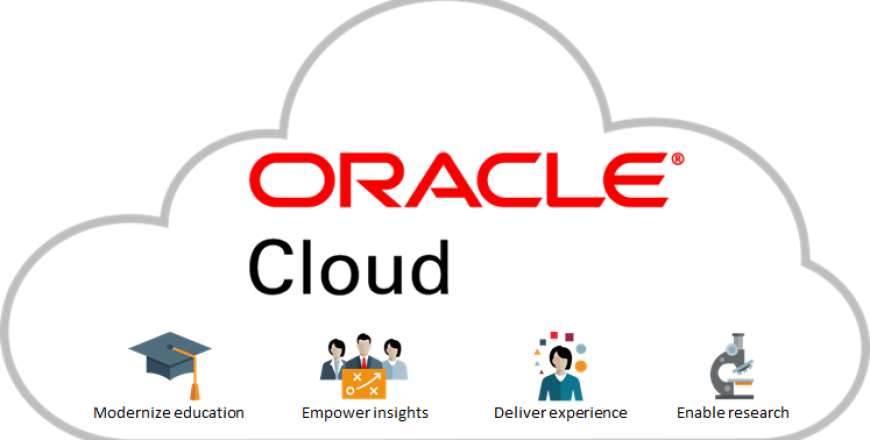
Recent Posts
- Google Cloud Platform’s Latest Innovations: Transforming the Future of AI and Cloud Computing
- Exploring Azure’s Cutting-Edge Services in 2025: A Step Towards a Smarter Future
- What Businesses Need to Know About Quantum Computing and Big Data
- The Future of Edge AI and Its Impact on Cloud SaaS Solutions
- AI, Big Data, and Cloud SaaS: A Triple Threat for Business Growth
